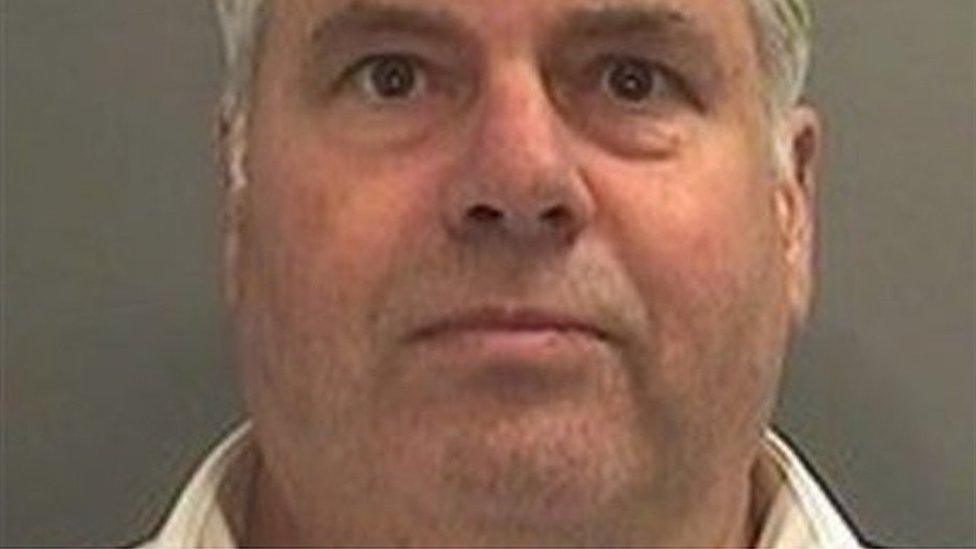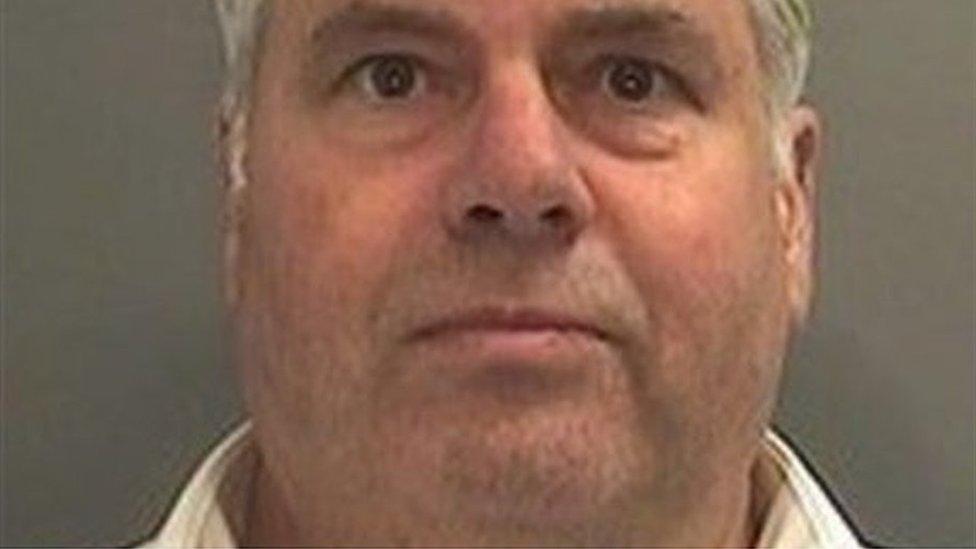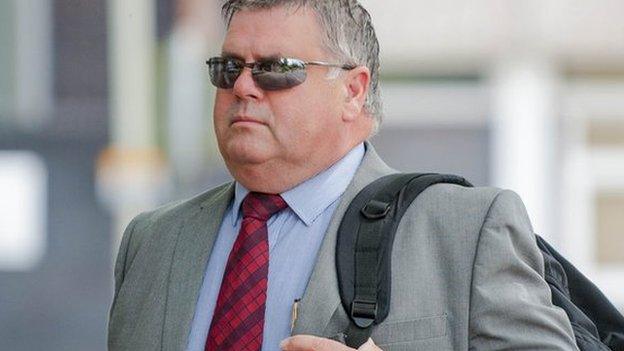Barry: Jehovah's Witnesses not liable to pay rape victim
- Published

Mark Sewell was jailed in 2014 for raping a woman and sexually abusing two young girls
Leaders of the Jehovah's Witnesses are not liable for the suffering of a woman raped by a church elder, the Supreme Court has concluded.
The woman was attacked in 1990 by Mark Sewell after going door-to-door for the religious group near Cardiff.
Sewell was jailed for 14 years in 2014 for raping the woman and sexually abusing two young girls.
Justices reversed a High Court award of £62,000 in damages to the woman on Wednesday.
They concluded the "Jehovah's Witness organisation is not vicariously liable for the rape".
The woman, who is no longer a Jehovah's Witness, said she suffered depression as a result of the rape and sued for compensation, claiming leaders of the Jehovah's Witnesses were "responsible in law" for the rape.
The worldwide governing body of the Jehovah's Witnesses, and the trustees of the congregation in Barry, Vale of Glamorgan, where the woman was a member, denied being vicariously liable for the rape.
A High Court judge concluded in 2020 that her psychiatric injuries were attributable to the rape and ordered the religious group to pay £62,000 general damages.
The Court of Appeal upheld the ruling.
But Supreme Court justices reversed it, saying there was "no convincing justification for the Jehovah's Witness organisation to bear the cost or risk of the rape committed by Mark Sewell".
Related topics
- Published30 January 2020

- Published27 June 2014
